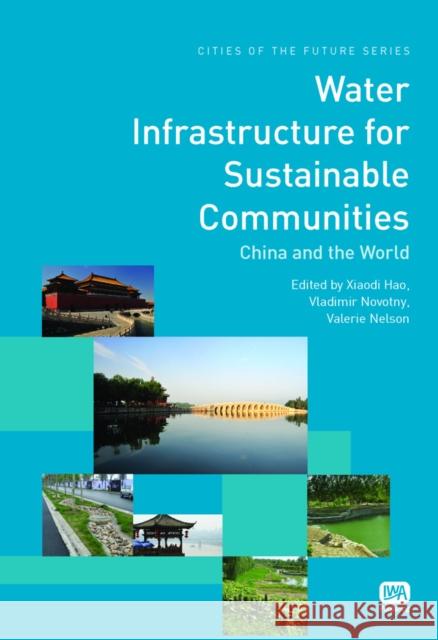Water Infrastructure for Sustainable Communities » książka
Water Infrastructure for Sustainable Communities
ISBN-13: 9781843393283 / Angielski / Twarda / 2010 / 608 str.
A new model for water management is emerging worldwide in response to water shortages, polluted waterways, climate change, and loss of biodiversity. Cities and towns are questioning the ecological and financial sustainability of big-pipe water, stormwater, and sewer systems and are searching for “lighter footprint” more sustainable solutions. Pilot projects are being built that use, treat, store, and reuse water locally and that build distributed designs into restorative hydrology.
This book has been developed from the conference on Sustainable Water Infrastructure for Villages and Cities of the Future (SWIF2009) held in November 2009 in Beijing (China) that brought together an international gathering of experts in urban water and drainage infrastructure, landscape architecture, economics, environmental law, citizen participation, utility management, green building, and science and technology development.
Water Infrastructure for Sustainable Communities China and the World reveals how imaginative concepts are being developed and implemented to ensure that cities, towns, and villages and their water resources can become ecologically sustainable and provide clean water. With both urban and rural waters as a focal point, the links between water quality and hydrology, landscape, and the broader concepts of green cities/villages and smart development are explored. The book focuses on decentralized concepts of potable water, stormwater, and wastewater management that would provide clean water. It results in water management systems that would be resilient to extreme events such as excessive flows due to extreme meteorological events, severe droughts, and deteriorated water and urban ecosystem quality. A particular emphasis is placed on learning lessons from the many innovative projects being designed in China and other initiatives around the world.
The principal audience for the book is university faculty and students, scientists in research institutes, water professionals, governmental organizations, NGOs, urban landscape architects and planners.
Visit the IWA WaterWiki to read and share material related to this title: http: //www.iwawaterwiki.org/xwiki/bin/view/Articles/WaterInfrastructureforSustainableCommunities
Edited by Professor Xiaodi Hao, Beijing University of Civil Engineering and Architecture, P. R. of China, Professor Vladimir Novotny, Northeastern University, Boston, USA and Dr Valerie Nelson, Coalition for Alternative Wastewater Treatment, MA, USA











